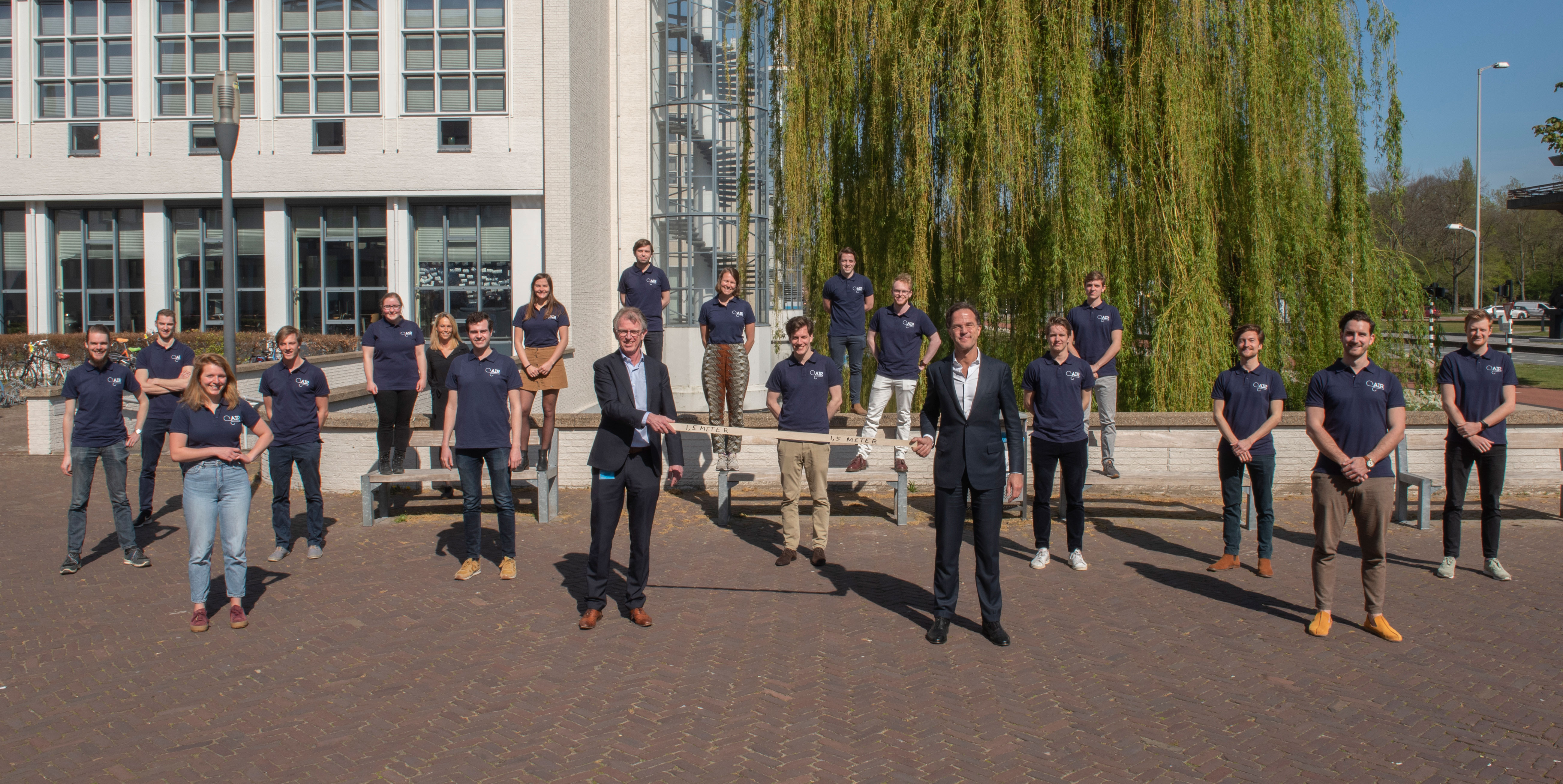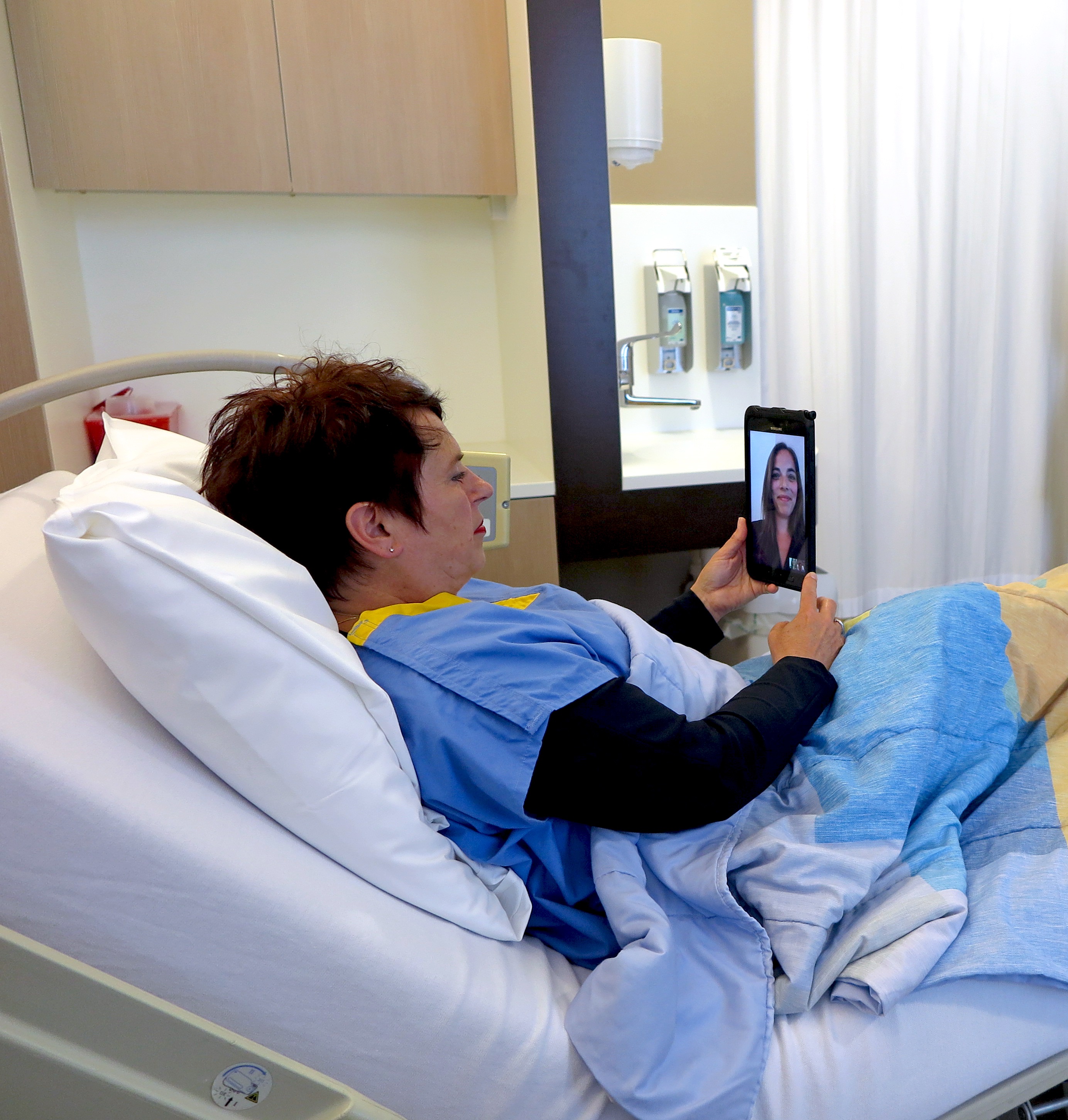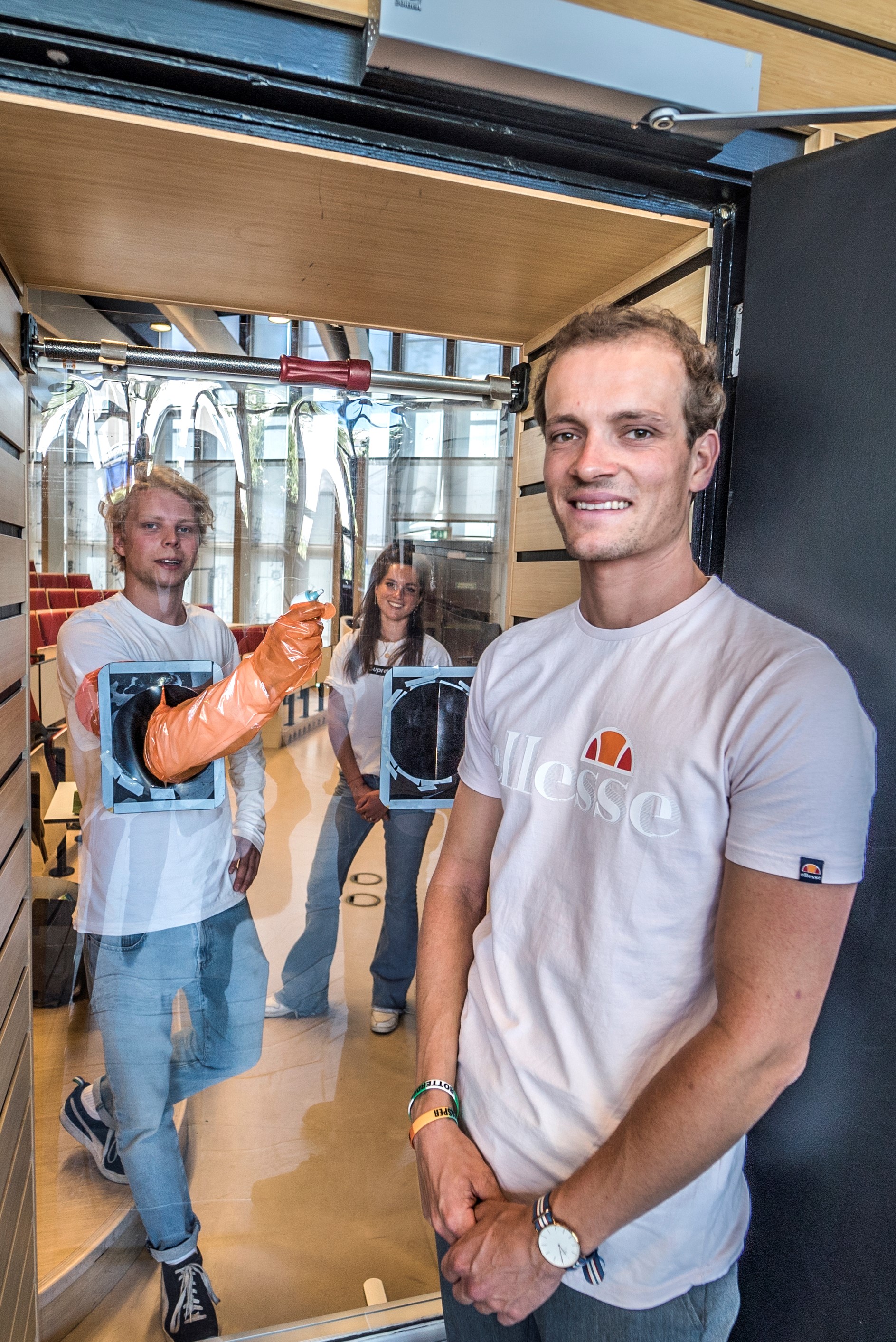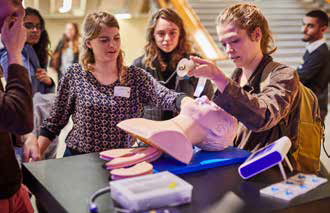How Delft engineers are fighting the coronavirus
Delft students and scientists are contributing to the fight against the coronavirus. Thanks to the TU Delft Covid-19 Response Fund they can access funding quickly, so that valuable time is not wasted.
Soon after the outbreak of the coronavirus pandemic, many Delft scientists and students launched initiatives to use Delft technology to help combat Covid-19. To support them, TU Delft and the Delft University Fund set up the TU Delft Covid-19 Response Fund, which to date has awarded more than €230,000 to sixteen projects in Delft. More than 900 alumni have contributed to the fund.
Air for All: OperationAIR
In just three weeks’ time, TU Delft students developed a working prototype for an emergency ventilator for coronavirus patients: the AIRone. Thanks to the financial support from the fund, the team were able to buy parts. After undergoing all kinds of tests (functional, mechanical, safety, user), the device was modified and is now ready to use. Eighty devices are currently in production. “The design, along with the test results and other documentation, is now available on an open-source platform so that other initiatives can start using the AIRone as well,” says Marijn Mostert, head of the testing team. In the Netherlands, the number of ICU admissions, and therefore the need for ventilators, has decreased considerably, so the students are now focusing on sharing their knowledge internationally.
Air for All: Inspiration
This ventilator is based on a proven mechanical principle and works without software, making it especially suitable for low-income countries.
Air for All: BTB Breathe
Researchers are testing the first prototypes of a ventilator that consists entirely of standard parts. These parts are available locally almost all over the world and can be produced by many manufacturers.
Project Mask
Due to the shortage of medical face masks, hospitals are looking for alternative suppliers. But how can you test the quality of those masks? Project Mask has pooled expertise to set up test facilities and support validation activities. You can find this study on the RIVM website.
Virus evolution and exit strategy
At the request of the RIVM, scientists are working on a special algorithm to forecast the evolution of the coronavirus. They are also working on an exit strategy.
Further Covid-19 Simulation Development
Researchers are using the Python COVID-19 Simulation project to gain insights into various exit strategies via a simulation platform.
Multifunctional UVC LED test platform
The coronavirus has been shown to be susceptible to a certain dosage of UVC light. To better understand this process, researchers are developing a test platform. They also hope to develop mini-UVC LED decontamination devices that can be used on door handles, taps, lift buttons and even smartphones.
We\Visit
“The Reinier de Graaf hospital was in need of a communication tool for its ICU,” says Dr. Elif Özcan-Vieira, director of TU Delft’s Critical Alarms Lab (CAL) and head of Care Technology at Erasmus MC’s ICU. “The patients were not only suffering from the coronavirus, but also from loneliness. I immediately felt that I had to do something about it.” In collaboration with Willem-Paul Brinkman, who uses virtual technologies to combat phobias (Faculty of Electrical Engineering, Mathematics and Computer Science), and psychologist Merijn Bruijnes, they came up with the idea of video-calling, set up in such a way that it wouldn’t put any further strain on the nursing staff. A prototype of We\Visit was ready within a week. The patient’s family can use a code to log in and to schedule a virtual appointment. At the agreed time, someone at the hospital sets up the video connection via a tablet. “EEMCS students did the technical implementation, all on a pro bono basis and in addition to their exams.” The application, Jitsi, is open source so it can be used by anyone.
Project Safeguard
Researchers are developing mobile testing facilities where patients can be helped without healthcare professionals having to wear personal protective equipment. The MediTent is intended for out-of-hours GP surgeries and MediShield for immobile patients.
The spread of coronavirus in indoor air
In the SenseLab at Science Centre Delft, a test installation is being built to visualise the spread of aerosols under various conditions. The objective is to be able to provide advice on ventilation in, for example, office spaces.
ResilientSociety
Initiatives have cropped up all over the Netherlands to combat Covid-19. TU Delft has set up the digital ResilientSociety platform where the business community, healthcare organisations and universities can effectively bring supply and demand in society together.
Relaxation of coronavirus measures
What does the Dutch population think about the relaxation of the coronavirus measures? Researchers surveyed the opinions of 30,000 Dutch people.
DelftScope: affordable video laryngoscope
There has been a sharp increase in the need to insert ventilation tubes using a video laryngoscope (VL). Thanks to video laryngoscopy, healthcare practitioners don’t have to stand as close to patients – they can look at a screen rather than in the patient’s mouth. VLs are expensive and are therefore scarce in low-income countries. Researchers are working on a new prototype using a low-cost screen with a simple user interface.
Agent-based simulation of the coronavirus pandemic
How is the coronavirus pandemic affecting people, society and the economy? To gain a clearer understanding of this, researchers are using agent-based modelling, a kind of simulation of how a population responds to certain measures.
Endoscope
What specific surgical risks need to be taken into consideration for abdominal surgeries on patients with coronavirus? Researchers are trying to find an answer to this question.
Masks Off
Masks Off is an online platform where nurses can share their daily experiences. Its aim to help them safeguard their mental health.
Thank you!
On behalf of all our researchers and students, we would like to thank you for your involvement and valuable donations.
Your support is always welcome. To find out how you can help, visit www.universiteitsfondsdelft.nl/covid-19
Want to read more about the projects supported by the fund? www.universiteitsfondsdelft.nl/gesteundeprojecten



